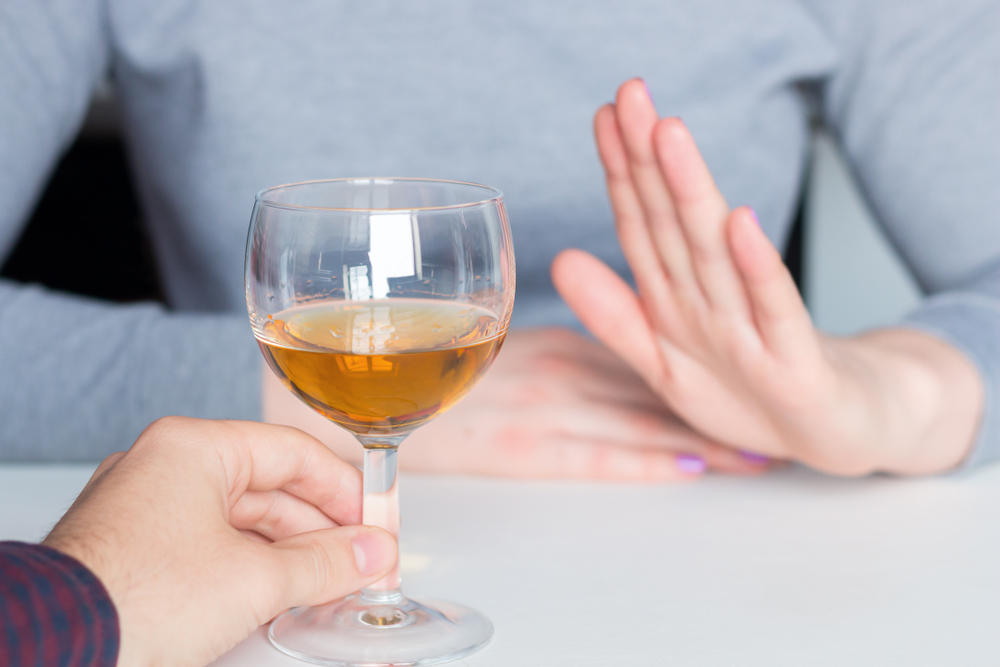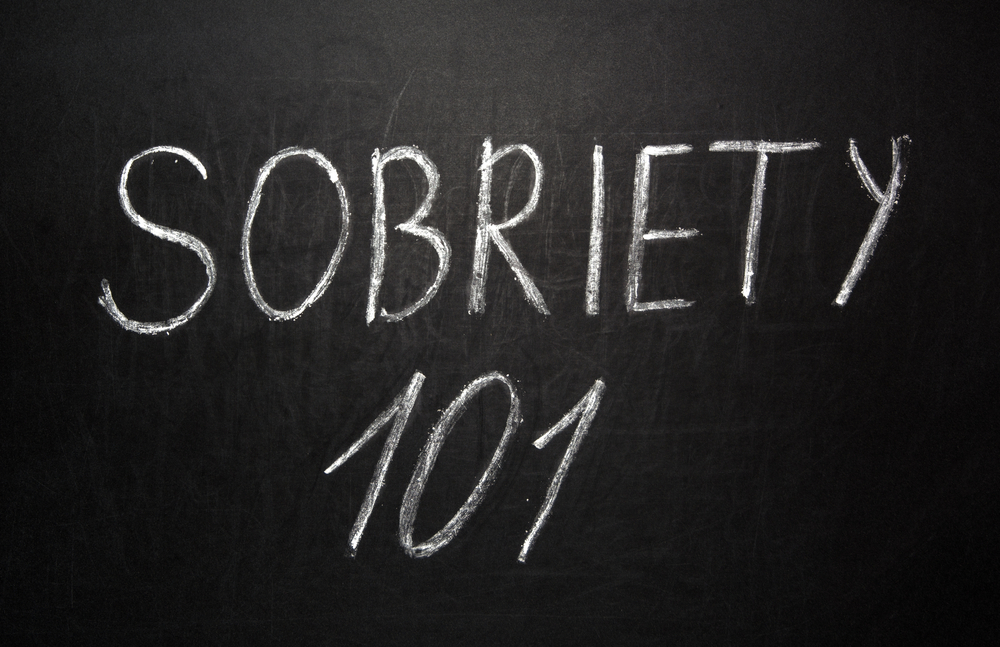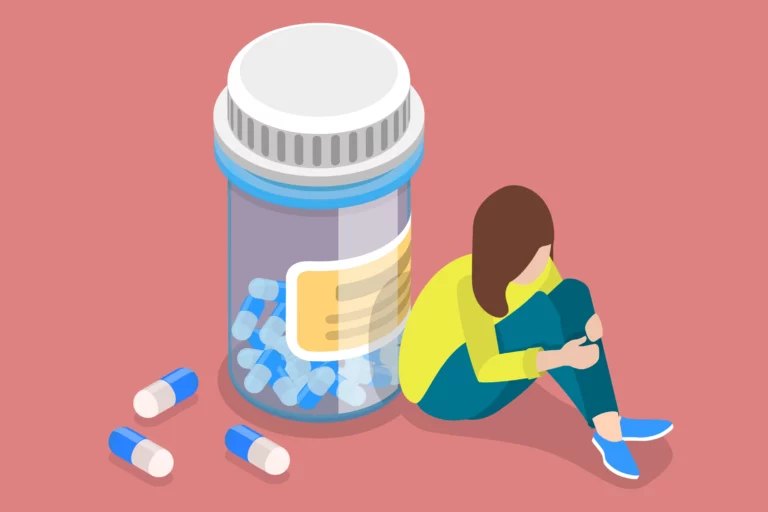Sobriety: A Beginner’s Guide
Sobriety marks the beginning of a new phase in your life, one in which you cannot use drugs or alcohol to numb pain or give you energy to get through your day. Recovering from an addiction can be scary. However, sobriety is highly rewarding as is learning how to manage your cravings and become a healthier person, both mentally and physically.
If you are new to sobriety, you must remain strong in recovery. A variety of temptations will manifest, especially in the early days of sobriety. In seeking treatment for addiction, every person has different wants, needs, and responses. Before you advance through the recovery stages towards long-term sobriety, it is important to know what to expect. This article’s purpose is to inform you of just that.
What is Sobriety? What Does it Mean?
There are various definitions of sobriety. As defined by Merriam-Webster, sobriety is the quality or state of being sober. In 12-step programs, sobriety refers to people who have achieved and maintained their mental health. According to another definition, a sober individual is one who is not influenced or dominated by intoxicants such as drugs or alcohol. Sobriety does not always indicate abstinence. Sobriety is the achievement of a successful life in recovery, not just the avoidance of intoxicants. It is generally considered to be a positive mental, physical, and spiritual well-being.

How Hard is it to Get Sober?
Sobriety may be a difficult process for some people, while others may find it easier. The degree of difficulty is determined by a variety of factors. A return to substance use following an attempt to quit, known as relapse, can jeopardize your sobriety. According to estimates, relapse rates for substance use disorders range from 40% to 60%. Individuals may be more likely to relapse if they exhibit the following:
- Poor coping skills
- Lack of support
- Cravings
- Doubt that they’ll be able to quit
- No motivation to change
- Co-occurring disorders
You may have a tougher time getting or staying sober if you have several of the risk factors listed above and recovery may require additional effort. It is important to know that relapse is a common part of the recovery process. In the event of a relapse, you should alter your recovery plan rather than give up on sobriety. Don’t be too tough on yourself if you have a relapse during the recovery process.
How Long Does it Take to Achieve Sobriety?
Each individual’s path to sobriety is unique. Your experience will depend on the substance you are giving up, how long you have been addicted to it, and how severe your dependence and addiction were. Working with an addiction specialist or mental health professional from the beginning will help you stay on track toward achieving long-term sobriety. Everyone is unique, but there are some generalities on what to expect.
The First Week
During the first week of sobriety, withdrawal symptoms may persist for a few days or weeks. These symptoms are unpleasant and present a high risk of relapse. Dependency on a substance or addiction to one will determine the symptoms you experience during the first week of sobriety.
The First Month
Once you have been sober for one month, you may begin to feel better as your withdrawal period ends. Some people experience protracted withdrawal that persists even after their initial withdrawal symptoms have subsided. During this phase of sobriety, you may experience the following:
- Fatigue
- Physical discomfort
- Anxiety
- Irritability
- Loss of interest
- Depression
- Poor concentration
- Poor memory recall
- Cravings
- Headaches
Knowing that these sensations are temporary is important. They may persist for several months but they will eventually improve. In the meantime, remember that staying sober for one month is a huge achievement.
Six Months
After six months of sobriety, your protracted withdrawal symptoms may be improving. You may be adapting to sobriety and observing benefits in different areas of your life, such as your health, well-being, and work. You may still feel down or overwhelmed at times, despite your sobriety. One study found that self-esteem and happiness were low during the first year of sobriety. It may be disheartening after you’ve worked so hard to get sober. During this time, you may benefit from getting involved in positive sober activities and working with your support network. Doing so may assist you in adjusting to a sober life and coping with the issues of sobriety.

One Year
Being sober for a whole year is a huge accomplishment that deserves to be celebrated. After the first year, many people say that they feel happier. You’ve successfully abstained from substance use for a whole year and handled life’s difficulties without reverting. It’s critical to maintain your recovery by continuing to participate in self-help groups, meet with a therapist, and participate in sober activities. While a year is a major milestone, recovery is continuous and requires ongoing effort.
Steps to Becoming Sober
Recognizing the need to get sober is one thing; figuring out how to do it is another. When someone recognizes that their addiction has a detrimental effect on their life, they still have a tough road ahead if they want to overcome it. Addiction recovery is a long and challenging process, but it can be made easier, less frightening, and more successful by understanding the steps required to fully support people on their journey.
1. Admit the Problem
Getting sober begins with recognizing and admitting that alcohol or drug abuse is keeping the person from leading a normal life. It is common for individuals to deny that they have lost control of their substance use. If someone has constant cravings, cannot quit using, or if tolerance keeps increasing, addiction has likely developed.
2. Ask for Help
After someone has identified their addiction for what it is, the next step is to seek assistance. There are various sources of assistance that can assist the individual in seeking the treatment necessary to overcome addiction and stay sober. Getting and staying sober is much more likely when the person has a supportive network to maintain motivation. It’s not a journey that must be undertaken alone.
3. Find Treatment That’s Right For You
According to the National Institute on Drug Abuse, no one treatment is effective for all individuals undergoing substance abuse treatment. It is critical to ensure that a treatment program that meets the individual’s needs is chosen. There are a variety of factors to take into account when making this decision, including the program’s qualifications and the individual’s level of substance abuse and desire to change.
4. Complete Withdrawal Process
Withdrawal is one of the most difficult aspects of quitting drugs or alcohol. Withdrawal symptoms can be very challenging to manage, and impulses to start using again might be overpowering. If you know what to expect and what help is available, it will be easier to handle the process in a composed manner and successfully complete it.
5. Participate in Treatment
After getting sober, the next step is to stick to a treatment plan and attend, commit to, and finish it. The specific therapy and treatment selections are chosen to address the issues that arise as a result of substance dependency. No treatment is effective for everybody; rather, people should be approached where they are rather than expecting everyone to be able to respond to generic treatment programs.

6. Find Support
As stated above, support can help an individual stick with treatment throughout the course of the program. It is also important for individuals to have support after rehab in order to make the transition back to daily life easier. Furthermore, having a support network post-rehab can foster the motivation and self-confidence necessary to maintain sobriety.
7. Enter an Aftercare Program
Upon completion of treatment, the individual should be able to return to daily life and manage their substance use disorder symptoms, remaining abstinent for the long term. It is recognized, however, that a variety of situations might make it difficult to reintegrate into regular life without some issues and potential relapses. Aftercare can be a lifeboat for individuals who are likely to relapse, making it simpler to stay afloat in recovery and avoid using drugs once again.
Benefits of Sobriety
Sobriety is undoubtedly a demanding undertaking, but the huge rewards it offers are well worth the effort. A sober lifestyle offers substantially more advantages than disadvantages, and significantly more than your previous nights of drinking and getting high. Sobriety has lasting, significant, life-altering advantages. Here are just a few:
Feel Better About Yourself
With drugs and alcohol out of the picture, you will experience the benefits of sobriety right away. Sleep will be deeper and more restorative, resulting in a healthier body. There will be more energy and motivation to exercise and maintain healthy eating habits. Your appetite and cravings for healthy, balanced meals will return. Your skin, hair, and eyes will also be clearer and renewed. You will notice and appreciate these improvements as will others.
Save Money
Drug and alcohol abuse, as you may well know, is costly, particularly if you build up a tolerance to them (take higher doses and need more of them). Prescription drugs, in particular, are costly. During active addiction, you tend to focus on acquiring your drug of choice. This results in less time and attention being devoted to your career and future savings. One of the greatest advantages of abstinence, in contrast, is that you regain the desire and capacity to save money. You will also be able to work hard and be accountable at work.
Healthy Relationships
Addiction frequently results in damaged connections with friends and family members. Whether you cut yourself off from loved ones who wished to aid you or you pushed them away out of devotion to drugs, you probably lost connections. Repairing and reconstructing broken connections is one of the greatest incentives for people in recovery. You, too, may have this issue. Sobriety may help you repair and rebuild broken connections. You might also find that those connections that have been re-established without the influence of drugs or alcohol are better than ever.

Make New Friends
Sobriety will provide you with plenty of opportunities to connect with old friends and family members, as well as make new ones. Whether you participate in 12-step programs or support groups, whether you are in residential addiction treatment or outpatient rehabilitation, you will find yourself among people who abstain from alcohol or drugs. Recovering without alcohol and other drugs will be a critical part of your journey. As you discover, you do not require alcohol to socialize or have fun.
Live a Happy, Fulfilling Life
Among the many advantages of staying sober, the most important and invaluable one is that you can construct an important life while being substance-free, a life brimming with meaningful recollections, experiences, and potential. Sobriety enables you to grasp and make the most of your existence. With sobriety, you may rediscover the good aspects of your life, experience them in their entirety, and connect with others. Drug and alcohol abstinence allows you to grasp your life and appreciate it to the fullest. You will grasp your loved ones more closely and remember the moments you’ve spent with them. You may build a life that is worthwhile living, one that is mentally, psychologically, and physically beneficial.
How to Stay Sober
It’s difficult enough to remain sober when life runs smoothly. But when the going gets tough, the difficulty is amplified to a whole new level. With strong support, commitment, and some good coping skills, you can resist cravings and ensure that any relapses are temporary. The following are ways to ensure you stay sober.
Practice Self-Care
Addiction recovery therapies equip you with positive self-care methods to help you live a substance-free life. Meditation is frequently taught because it is a foundation for mental and emotional stability as well as development. Mindfulness meditation for addiction specifically addresses addiction’s neurocognitive foundations, which help establish psychological balance via awareness. It has also been shown to decrease relapse. To reap the most benefits, professionals suggest meditating daily, even for a brief time period.
Have an Accountability Partner
A sponsor is one of the primary building blocks of 12-step programs, and it consists of a close friend who is there for you if you feel tempted to relapse. To maintain sobriety, NA members cite the support network as a key factor, and studies show that this support system is critical for those struggling with substance abuse, particularly substance abuse. It’s good if this person has been successful in their own recovery program and is a substance abuse coach since they’ll be the most knowledgeable to help you stay on the right path.
Enter an Outpatient Program
Being grounded in your resolve while also growing into a stronger version of yourself is a long-term recovery process. Some outpatient therapy programs include mindfulness meditation training as well as growth-promoting practices. Some outpatient programs provide intensive schedules, while others offer more flexible scheduling, such as one or two sessions per week, to suit an individual’s available time and daily life demands.
Avoid Triggers
When you’re attempting to avoid substance-related environments, it’s crucial to stay away from places where you’ve consumed or used substances as well as all other triggering cues. If you must enter a triggering environment, monitor for this phenomenon, and leave if your cravings overwhelm you. Mindfulness and relaxation methods can assist with this. Using these strategies, you can breathe through cravings resulting from triggers, become desensitized to drug-related environments, and disconnect them from their substance associations. However, if you feel that your cravings have overwhelmed you, leave immediately.
Attend Support Groups
You can build a support network through organizations like Alcoholics Anonymous or Narcotics Anonymous. You may try different meetings in order to find one that suits you. You can utilize smartphone applications to connect with others who are struggling with the same issues you are. Some apps not only provide assistance and guidance but also assist you in getting immediate assistance from your network or finding a ride to a support group meeting.

Treatment Options to Get Sober
Finding a treatment program that can help restore their health, well-being, and happiness is often the initial step toward substance dependence recovery. There are numerous treatment options available. In addition to detoxification, some people with severe addiction enter rehabilitation. Those who enter rehabilitation can choose an inpatient or outpatient facility. It is vital to reinforce the lessons learned in rehab by attending therapy sessions and support groups after treatment. The following are common treatment options for achieving lifelong sobriety:
Detox
Individuals with moderate to severe addiction often require medication-assisted therapy to help detoxify from drugs or alcohol. Withdrawing from these substances often requires medication-assisted therapy to avoid severe withdrawal symptoms.During detox, patients are tapered off of addictive substances until they no longer require them physically.
Inpatient Addiction Treatment
Patients live in a substance-free facility and receive around-the-clock medical care and therapeutic support during inpatient rehab. Inpatient rehabs provide structured treatment programs for individuals with addictions. Inpatient rehabs are a good option for those struggling with chronic addiction or co-occurring mental or behavioral issues.
Outpatient Addiction Treatment
Patients in outpatient rehabs receive many of the same quality treatments and therapies as those in inpatient facilities. Patients may continue to live at home while receiving addiction care in an outpatient facility rather than being sequestered from the real world. Patients may continue to work and care for their families while receiving treatment at regular intervals all week long. Because of this, outpatient rehabs are a fantastic option for individuals with mild dependencies and a dedicated, disciplined approach to recovery. After inpatient treatment, outpatient programs are frequently used in combination with sober living communities.
Sober Living
People in recovery who require additional time reinforcing what they learned in rehab can benefit from sober living homes. These residential bridges operate between inpatient treatment centers and normal life. Sober living homes also provide structure while still being comfortable and provide an excellent environment in which to strengthen one’s new healthy habits.

Medication-Assisted Treatment
Patients may be given drugs to assist with the recovery process during detox and throughout treatment. These drugs are used to help reduce cravings, manage withdrawal symptoms, or treat co-occurring illnesses, among other things. Medication-assisted treatment for addiction has the greatest success when it is combined with a comprehensive treatment program.
Find Sobriety at Oasis Recovery Center
Through our patient-centric approach to rehabilitation, Oasis Recovery Center offers specialized medical and clinical care. When a client first enters our program, our compassionate and experienced staff creates custom treatment plans to ensure your individual wants and needs are met.
Despite the fact that overcoming an addiction is difficult, it is not impossible. With the help and support of the professionals at Oasis Recovery, you can achieve a life free from addiction. Contact us today to learn more. We can beat this addiction together.









